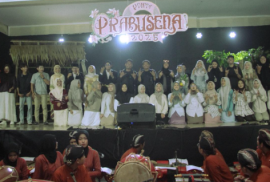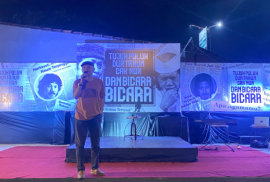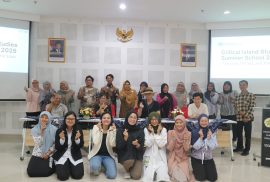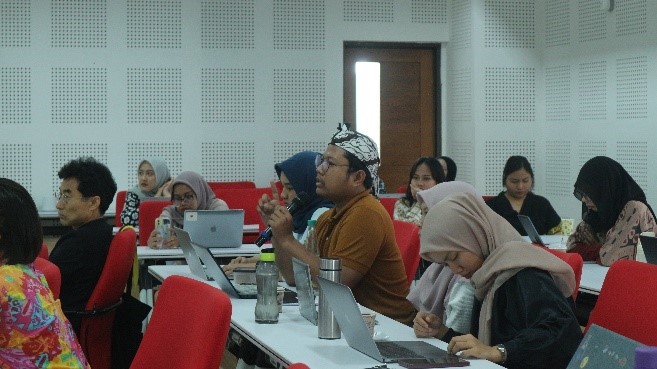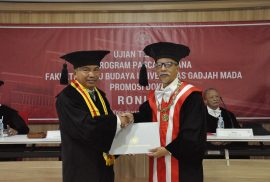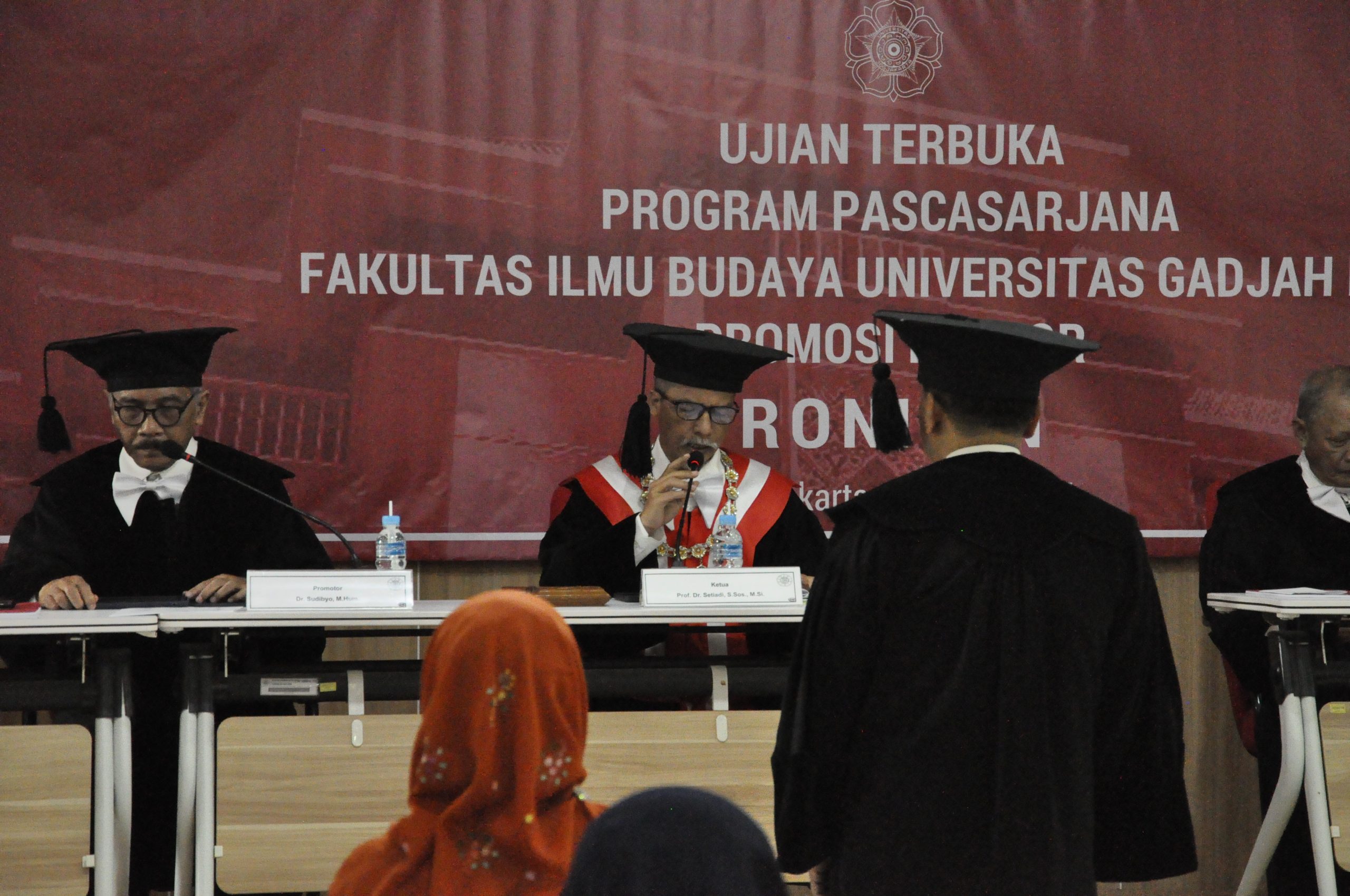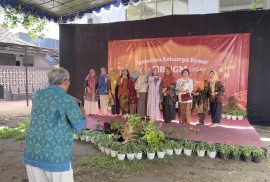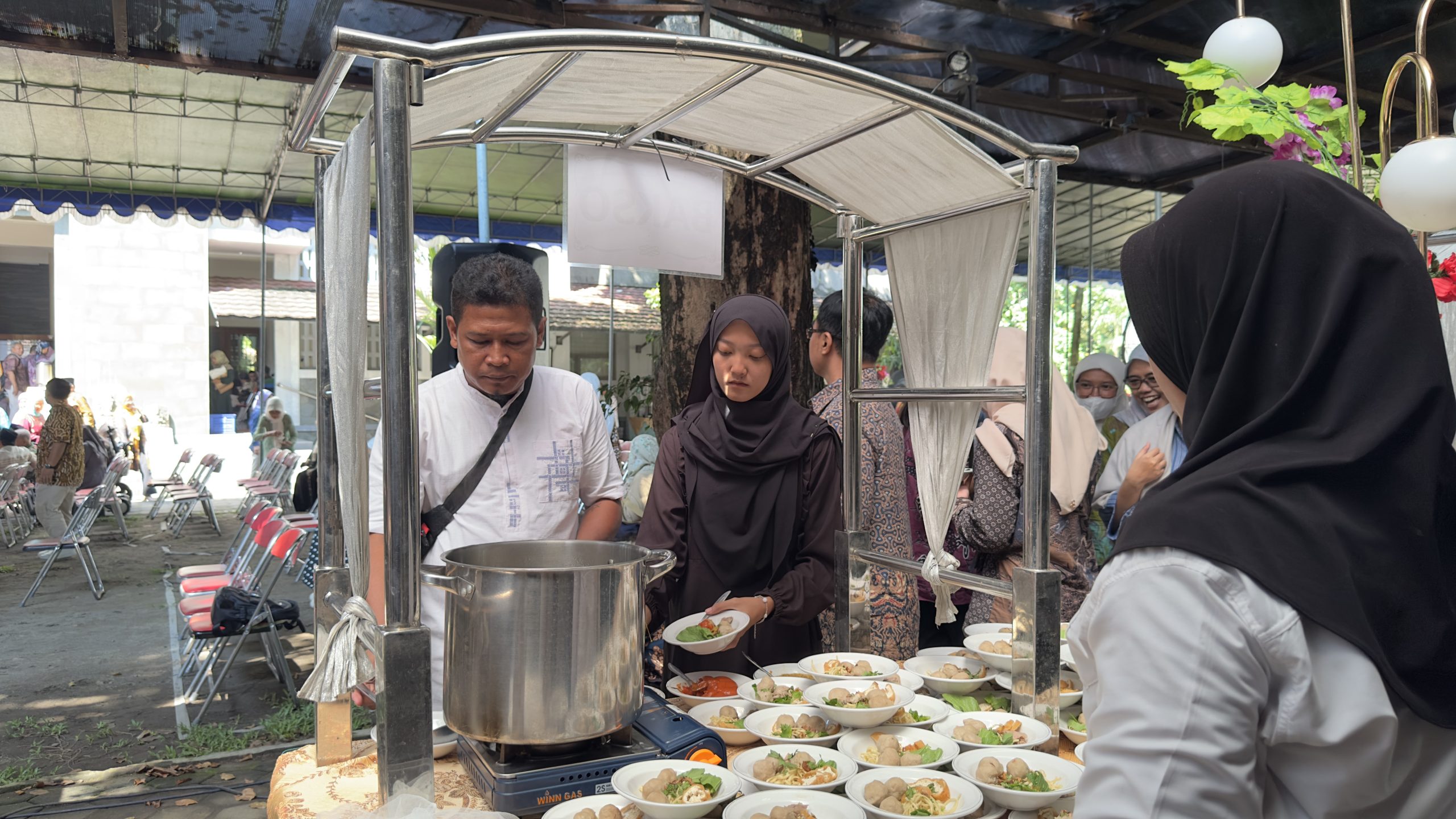Yogyakarta, 31/05/2025 – Another proud achievement came from mahadaya (students of Cultural Sciences). Nurcholish Ramadhan, a 2024 student from the Department of Javanese Language, Literature, and Culture, Faculty of Cultural Sciences UGM, successfully directed the production of a theater performance entitled Sat-Set. The show was performed by Teater Berdaya in Prabusena (Cultural, Art, and Islamic Appreciation Stage of PD IPM Bantul) 2025 on Saturday night, May 31, 2025 at 20.00 WIB, at the 1st Floor Hall of the Da’wah Building of PDM Bantul.
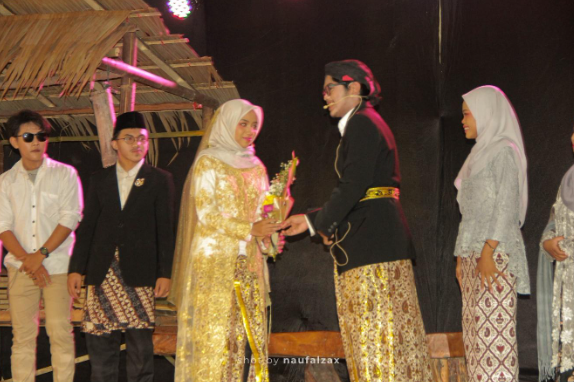
Sat-Set Theater tells the story of the love journey of Fikar, a 28-year-old man, the son of a panewu (sub-district head), who falls in love with Alya – the daughter of his late father’s best friend. An accidental meeting in the square is the beginning of Fikar’s love story. After some research, Fikar learns that Alya is the daughter of Paklik Pram, his father’s old friend. They stay close for a month, but Fikar never proposes. To provoke Fikar’s sincerity, Paklik Pram created the rumor that Alya would be married off. The plan worked. Although Fikar initially only expressed his feelings in front of Paklik and Bulik Pram, he finally received their blessing. Later, Fikar went to the park where he often visited with Alya. There they meet again after not seeing each other for several days. Finally, Fikar expresses his love and immediately asks Alya to marry him.
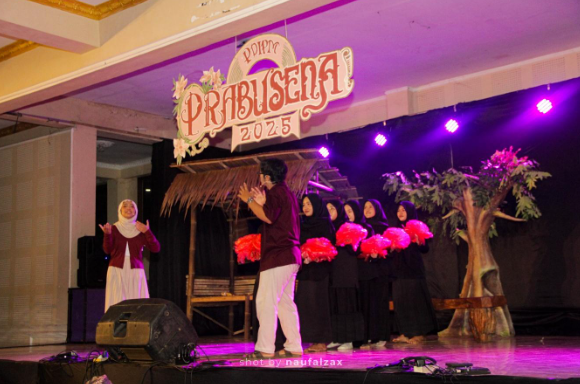
The uniqueness of Sat-Set theater lies in its source of inspiration. Nurcholish Ramadhan said that Sat-Set was inspired by Serat Riyanta, a Javanese literary work written by R. B. Soelardi in 1918. In an online interview conducted on June 12, 2025, Nurcholish explained that his interest in the fiber began with a course assignment. “After I read Serat Riyanta from beginning to end, I was interested and liked the story, so I had an idea to translate it into a performance,” he explained.
The production process of the performance was not free from challenges. Nurcholish mentioned that the limited duration required him to summarize the narrative of Serat Riyanta effectively, without losing the essence of the story. In addition, funding constraints were also an obstacle. Nevertheless, he was grateful that the performance could run optimally.
“Through this performance, I learned to go deeper into the work that was referred to when it was adapted into a theater script. Then, I feel happy to be able to accommodate the potential and talents of my fellow Muhammadiyah students in the arts,” he said.
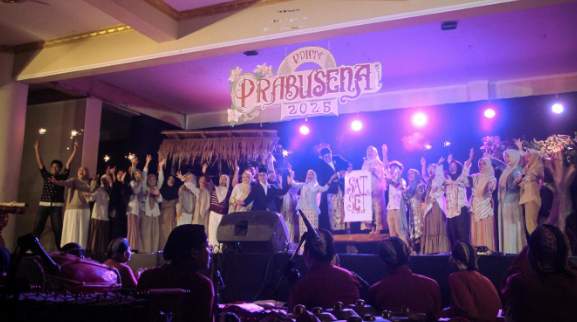
Sat-Set Theater is a tangible form of nguri-uri ‘preserving’ and ngurip-urip ‘enlivening’ regional arts, literature, and culture. Past literary works hold a wealth of historical values, knowledge, moral and didactic teachings, and interesting stories to be revived. Through the excavation, preservation and utilization of these cultural treasures, the community not only benefits sustainably, but also builds a sense of pride in the nation’s noble identity. As Nurcholish said at the end of the interview. “A history and culture will always be preserved when there are people who want to nyinau (learn) and adum ilmu (share knowledge),” he concluded.
[Haryo Untoro]

